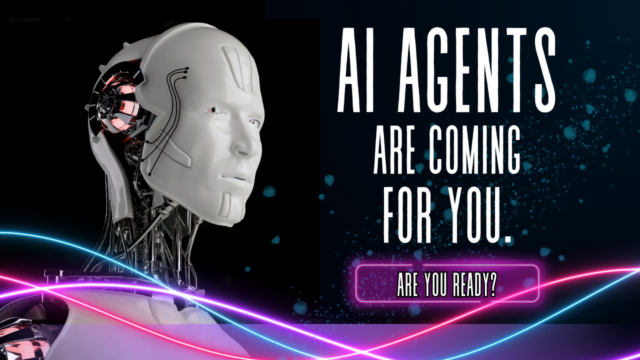
In the rapidly evolving landscape of artificial intelligence, the transition from chatbots to AI agents signifies a pivotal shift towards more autonomous, sophisticated, and integrated digital assistants. This transition marks a new era where AI’s capabilities extend far beyond simple conversational interfaces, offering tailored, proactive solutions that seamlessly integrate into workflows and enhance productivity across various sectors.
Key Highlights:
- AI agents represent a significant advancement over traditional chatbots, equipped with the ability to perform a wide range of tasks autonomously.
- The integration of AI agents into business workflows promises to streamline operations and enhance efficiency.
- Innovations in AI technology are enabling these agents to handle complex requests, learn from interactions, and offer personalized experiences.
- The development and adoption of AI agents are driven by their potential to transform industries by automating routine tasks and providing advanced analytical insights.
Understanding AI Agents
AI agents are designed to act autonomously, performing tasks without requiring constant human guidance. These advanced digital assistants are not confined to answering queries but are capable of executing a series of actions to achieve specific objectives. Unlike their predecessors, AI agents can integrate with multiple data sources and systems, analyze complex datasets, and even make decisions based on predefined criteria. This leap in functionality is powered by advancements in machine learning, natural language processing, and generative AI, enabling AI agents to understand and process human language more effectively and interact in a more human-like manner.
Revolutionizing Industries
AI agents are finding applications across a broad spectrum of industries, from customer service and HR to marketing and finance. For instance, in customer service, AI agents can manage inquiries, resolve issues, and provide 24/7 support without human intervention. In HR, they can automate the recruitment process, from posting job listings to initial candidate screenings. Marketers can leverage AI agents to draft content strategies and manage social media postings, while finance teams can use them for invoicing and transaction processing.
One notable example of AI agent innovation is ChartGPT, which transforms raw data into interactive charts and graphs, facilitating better data visualization and analysis. Another example is ChatGPT Danger, which prioritizes user safety by filtering harmful or offensive content, showcasing the potential of AI agents to create safer digital environments.
Future Prospects and Challenges
As AI agents continue to evolve, they promise to bring about significant efficiency gains and cost savings for businesses. However, this transition also poses challenges, including the need for substantial investment in AI development and the potential for job displacement in certain sectors. Moreover, the ethical implications of autonomous AI systems, such as privacy concerns and decision-making transparency, are critical considerations that need to be addressed.
Despite these challenges, the future of AI agents looks promising, with continuous advancements expected to enhance their capabilities further. As they become more integrated into everyday workflows, AI agents are set to redefine how businesses operate, making processes more efficient and enabling companies to focus on higher-value tasks.
The shift from chatbots to AI agents represents a transformative phase in AI development. With their advanced capabilities and potential to revolutionize various industries, AI agents are not just the future of artificial intelligence; they are shaping the future of work and productivity.








